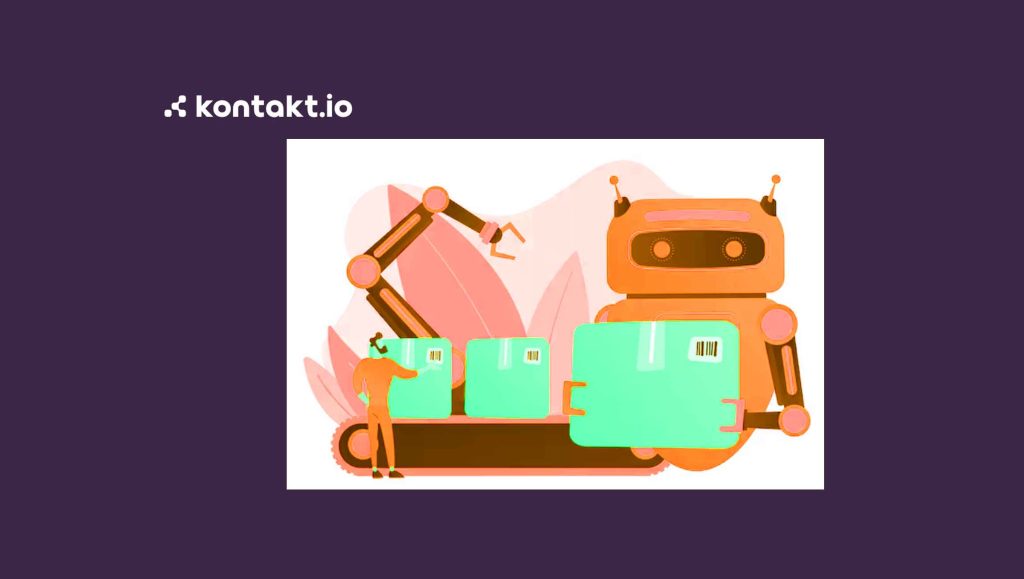Amazon Lookout for Vision uses AWS-trained computer vision models on images and video streams to find anomalies and flaws in products or production processes
GE Healthcare, Amazon, and Basler among customers and partners using Lookout for Vision
Today, Amazon Web Services, Inc. (AWS), an Amazon.com, Inc. company (NASDAQ: AMZN), announced the general availability of Amazon Lookout for Vision, a new service that analyzes images using computer vision and sophisticated machine learning capabilities to spot product or process defects and anomalies in manufactured products. By employing a machine learning technique called “few-shot learning,” Amazon Lookout for Vision is able to train a model for a customer using as few as 30 baseline images. Customers can get started quickly using Amazon Lookout for Vision to detect manufacturing and production defects (e.g. cracks, dents, incorrect color, irregular shape, etc.) in their products and prevent those costly errors from progressing down the operational line and from ever reaching customers. Together with Amazon Lookout for Equipment, Amazon Monitron, and AWS Panorama, Amazon Lookout for Vision provides industrial and manufacturing customers with the most comprehensive suite of cloud-to-edge industrial machine learning services available. With Amazon Lookout for Vision, there is no up-front commitment or minimum fee, and customers pay by the hour for their actual usage to train the model and detect anomalies or defects using the service.
Read More: 2021: A Year Of Success And Hope For Content Marketers, Despite The Challenges
“Reducing faults is one of the most important KPIs to consider for manufacturing companies. Traditional manual inspection is labor intensive and difficult to scale. By using computer vision for quality inspection, this process can be automated and lead to a significant reduction of costs”
In today’s manufacturing industry, production line shutdowns due to missed defects or quality inconsistencies can result in millions of dollars of cost overruns and lost revenue every year. To avoid these expensive issues, industrial companies must maintain constant diligence to ensure quality control. Quality assurance in industrial processes typically requires human inspection, which can be tedious and inconsistent at best, or at worst, infeasible. Computer vision brings the speed and accuracy needed to identify defects consistently; however, implementing traditional computer vision solutions can be complex. Building computer vision models from scratch requires large amounts of carefully labeled images for each element of the manufacturing process. Then, teams of data scientists need to build, train, deploy, monitor, and fine tune computer vision models to analyze each individual phase of the product inspection process. Even small changes in the manufacturing process (e.g. replacing an out of stock component with an equivalent alternative, updates to the product specifications, or a change in lighting) means having to retrain and redeploy the individual model and perhaps other models downstream in the production process, which is tedious, complex, and time consuming. Because of these barriers, computer vision-powered visual anomaly systems remain out of reach for the vast majority of companies.
Amazon Lookout for Vision offers customers a highly accurate, low-cost anomaly detection solution that uses computer vision to process thousands of images an hour to spot defects and anomalies – with no machine learning experience required. Customers send camera images to Amazon Lookout for Vision in real-time to identify anomalies, such as damage to a product’s surface, missing components, and other irregularities in production lines. Utilizing a machine learning technique called few-shot learning (where the machine learning model is able to classify data based on a very small amount of training data), the service needs as few as 30 images of the acceptable and anomalous state as a baseline to begin assessing machine parts or manufactured products. In addition to enabling the service to detect anomalies without large amounts of training data, this capability also allows the service to be adaptable to a wide range of inspection tasks within industrial settings. After analyzing the data, Amazon Lookout for Vision then reports images that differ from the baseline via the service dashboard or the “DetectAnomalies” real-time API so that appropriate action can be taken. Amazon Lookout for Vision is sophisticated enough to maintain high accuracy with variances in camera angle, pose, and lighting arising from changes in work environments. Customers also have the ability to provide feedback on the results (e.g. whether a prediction correctly identified an anomaly or not), and Lookout for Vision will automatically retrain the underlying model so that the service continuously improves. This feature allows the technology to adapt to changes in the manufacturing process and even understand when variations are permissible or not based on customer feedback. This means that customers can be more nimble and adapt their processes based on competitive advantages or external factors impacting their operations.
Read More: Mindtree Achieves Google Cloud Partner Specialization In Application Development
“Whether a customer is placing toppings on a frozen pizza or manufacturing finely-calibrated parts for an airplane, what we’ve heard unequivocally is that guaranteeing only high-quality products reach end-users is fundamental to their business. While this may seem obvious, ensuring such quality control in industrial pipelines can in fact be very challenging,” said Swami Sivasubramanian, Vice President of Amazon Machine Learning for AWS. “We’re excited to deliver Amazon Lookout for Vision to customers of all sizes and across all industries to help them quickly and cost effectively detect defects at scale to save time and money while maintaining the quality their consumers rely on – with no machine learning experience required.”
Lookout for Vision is available directly via the AWS console as well through supporting partners to help customers embed computer vision into existing operating systems within their facilities. The service is also compatible with AWS CloudFormation. Lookout for Vision is available today in US East (N. Virginia), US East (Ohio), US West (Oregon), EU (Ireland), EU (Frankfort), Asia Pacific (Tokyo), and Asia Pacific (Seoul), with availability in additional regions in the coming months.
GE Healthcare is a leading global medical technology and digital solutions innovator that enables clinicians to make faster, more informed decisions through intelligent devices, data analytics, applications, and services. “We are excited about the encouraging early results from Amazon Lookout for Vision that will promise to help improve the speed, consistency, and accuracy of detecting product defects across our factories,” said Kozaburo Fujimoto, Operating Officer, General Manager, Manufacturing Division, Plant Manager, GE Healthcare Japan. “As one of the world’s most trusted healthcare companies with more than a century of technological progress and digital innovations, we look forward to capitalizing on the benefits that AWS’s industrial machine learning services will potentially bring to our manufacturing environments.”
Amazon’s Print-On-Demand (POD) facilities print books on demand to fulfill customer orders. “With POD, since books are manufactured when ordered by a customer, it is imperative to ensure precision at every step of the manufacturing process to offer a fast delivery time and the highest quality books to our customers,” said David Symonds, Worldwide Director of POD for Amazon. “With Amazon Lookout for Vision, we can automate and scale visual inspection at each step of manufacturing while running at full processing speeds, helping us ensure a great customer experience.”
Basler is a global manufacturer and solution provider in industrial vision, providing cameras and machine vision systems for applications such as semiconductor inspection, robotics, food inspection, postal sorting, and inspections of printed images. “Reducing faults is one of the most important KPIs to consider for manufacturing companies. Traditional manual inspection is labor intensive and difficult to scale. By using computer vision for quality inspection, this process can be automated and lead to a significant reduction of costs,” said Gerrit Fischer, Head of Marketing for Basler AG. “Basler and Amazon Lookout for Vision provide a very lean architecture to adopt vision based anomaly detection in any manufacturing site. We’re excited to jointly provide our customers with complete vision solutions by combining Basler’s expertise in industrial vision and edge platforms with AWS’s investments in industrial machine learning.”
Dafgards is a household name in Sweden, manufacturing a broad assortment of foods. “We previously tried Amazon Lookout for Vision to automate the inspection of our pizza production lines to detect whether pizzas had enough cheese and the correct toppings, with good results,” said Fredrik Dafgård, Head of Operational Excellence & Industrial IoT for Dafgards. “We’re excited to extend Lookout for Vision to our other production lines such as hamburgers and quiches, to help us detect any anomalies like incorrect ingredients. Over time, we plan to scale Lookout for Vision across multiple production lines. Amazon Lookout for Vision will allow Dafgards to improve the consistency and accuracy of detecting defects and anomalies, allowing us to improve our overall production quality at scale.”





















